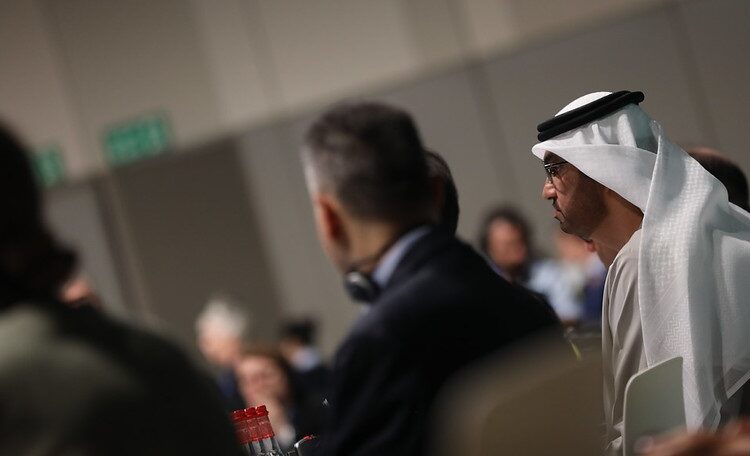A big part of the $83 billion “mobilised” at Cop28, Alterra is primarily a profit-seeking fund with some development goals
Perhaps the most eye-catching announcement of the first day of Cop28 was the United Arab Emirates pledge to create a $30 billion climate-focused investment fund called Alterra.
This makes up much of the UAE presidency’s estimate Cop28 has “mobilised” over $83 billion, which it is promoting to the press and on social media.
The other big chunk of the total is $31.6bn dedicated to climate projects by multilateral development banks. Governments have pledged smaller sums to funds including the Green Climate Fund ($3.5bn), Adaptation Fund ($134m) and Least Developed Countries Fund ($129.3m).
Unlike these development-focused initiatives, Alterra is primarily a profit-seeking fund. It plans to buy shares in green companies and to make money when their share prices rise and they pay dividends. Of this $30 billion, $5 billion is earmarked for investment in developing countries.
The Cop28 presidency said that when other investors see the UAE’s money flowing into these investments, that will build their confidence to invest too. That way, they hope they can attract $250 billion by 2030.
How will it be invested?
The fund will be managed by Lunate, a company headquartered in the UAE city of Abu Dhabi. Lunate is part-owned by Tahnoun bin Zayed, the UAE’s national security chief and brother of its ruler.
The Cop28 presidency said $2 billion will go into the “Global Transition Fund II”, managed by Canadian giant Brookfield and its head of transition investing Mark Carney.
Much of the money will go into polluting businesses which Brookfield thinks are trying to clean up. Commenting on the Global Transition Fund I in Brookfield’s 2021 sustainability report, Carney said “transition doesn’t mean flipping a green switch or investing only in companies that are already green”.
He added: “Financial institutions must go where the emissions are and back companies — including heavy-emitting sectors like steel, cement, and transportation — that have credible plans to transform their business for a net-zero world.”
Some of the $30 billion will be invested in Brookfield’s new Catalytic Transition Fund. The Cop28 presidency said this will be “multibillion dollar” and invest only in “emerging and developing” countries.
Another $2 billion will be managed by American company Blackrock. Of this, $1 billion will go to Blackrock’s Climate Transition-Oriented Private Debt (CPD) strategy, $650 million will be invested in the Global Infrastructure Fund IV and $350 million will go to infrastructure in the Global South.
The CPD’s $650 million will be invested in medium-sized companies, which Blackrock says are “primarily in Europe and the US” and “are committed to reducing their carbon emissions”. It uses a private framework to judge whether companies meet this criteria.
Devil in the detail
E3G’s sustainable finance lead Kate Levick said this fund is “probably a good thing”. It is not purely a profit-seeking fund, she noted, because it’s doing things like trying to bring down the cost of borrowing in developing countries.
Levick praised the strategy of investing in high-emitting businesses but only if they have a “solid transition plan”. While accepting investments in high-emitters could be controversial, she said “this could be get-your-hands-dirty time”.
Action Aid campaigner Teresa Anderson contrasted the $30 billion investment with the UAE’s $0.1 billion pledge to the loss and damage fund.
While the $0.1 billion pledge “seemed generous” compared with other countries “paltry” offers, she told Climate Home, it was “chump change when compared to the $30 billion being channeled to the private sector and asset funds”.
“This is part of a global trend in which huge amounts of money that could be used as grants to benefit climate-vulnerable communities are going to the pockets of banks and big business,” she added.















